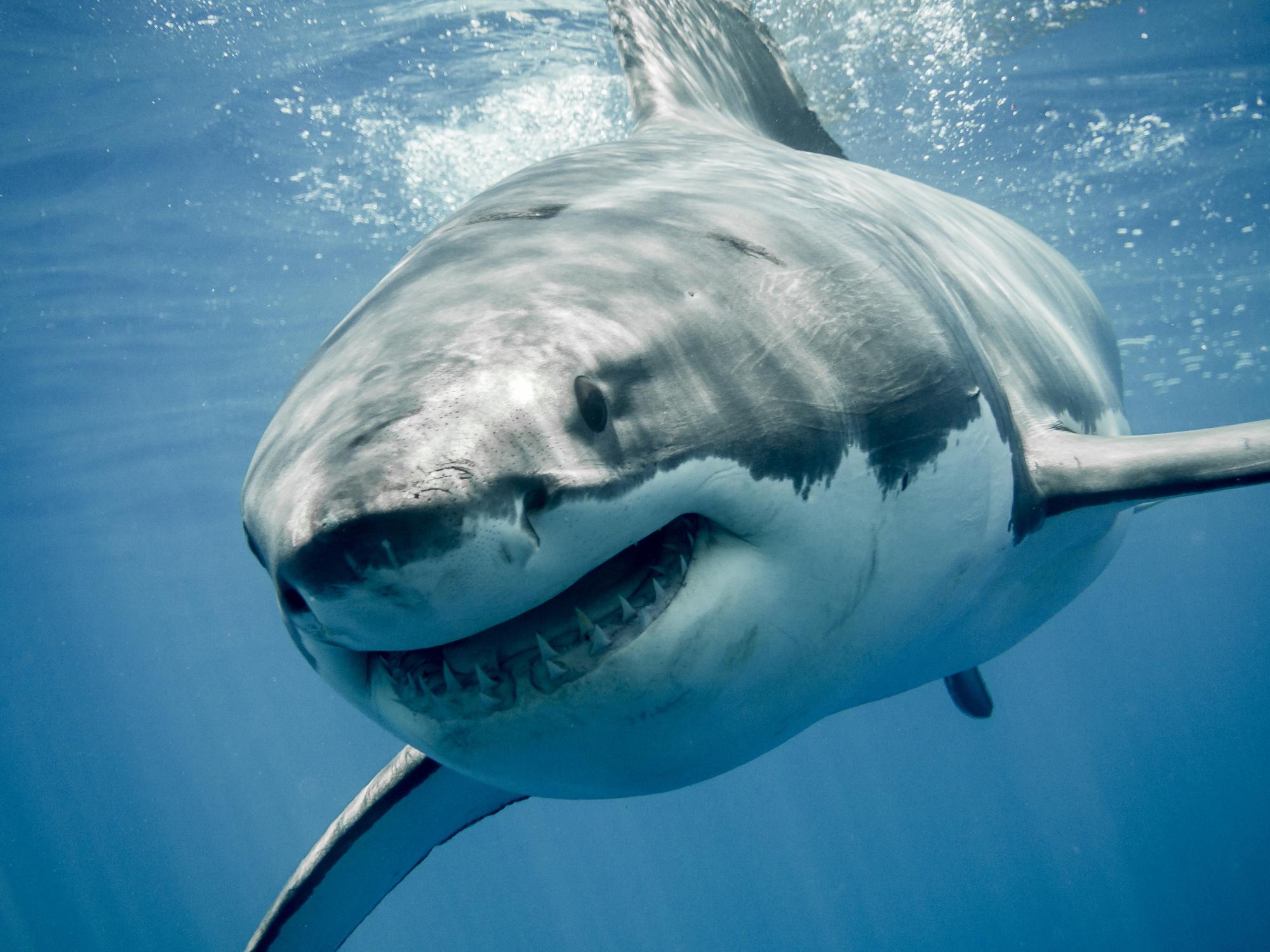Great white sharks surviving with toxic levels of mercury and lead in their blood, scientists reveal
'The results suggest that sharks may have an inherent physiological protective mechanism that mitigates the harmful effects of heavy metal exposure'

Levels of toxic mercury, arsenic and lead have been found at shockingly high levels in the blood of great white sharks swimming off the coast of South Africa.
Despite being present at concentrations that would kill most animals, these toxins appear to have no effect on the enormous predatory fish.
The scientists undertaking the tests think the sharks may have a special ability to resist the dangerous effects of the heavy metals.
As great whites are top predators, they accumulate high volumes of toxins in their bodies from all the other creatures they eat.
“By measuring concentrations of toxins, such as mercury and arsenic, in the blood of white sharks, they can act as ‘ecosystem indicators’ for the health of the ecosystem, with implications for humans,” said Dr Neil Hammerschlag, a co-author of the study at the University of Miami.
“Basically, if the sharks have high levels of toxins in their tissues, it is likely that species they eat below them will also have toxins, including fishes that humans eat.”
To undertake their study, the scientists carefully captured and samples 43 sharks, taking blood samples and body measurements before tagging and releasing them.
As many shark species are endangered, the team said it was vital to understand what impact toxic heavy metal pollution was having on them.
The scientists were surprised to find no harmful effect on white blood cell counts or other potential indicators of ill health.
“The results suggest that sharks may have an inherent physiological protective mechanism that mitigates the harmful effects of heavy metal exposure,” said Dr Liza Merly, who led the study.
While the sharks may indeed be resistant to these pollutants, it will not be enough to protect them from the myriad other threats facing sharks – primarily persecution by humans.
Earlier this month, experts announced more sharks were being added to the official list of endangered species, including the shortfin mako, known as the fastest shark in the world.
These results were published in the journal Marine Pollution Bulletin.

Join our commenting forum
Join thought-provoking conversations, follow other Independent readers and see their replies
Comments
Bookmark popover
Removed from bookmarks